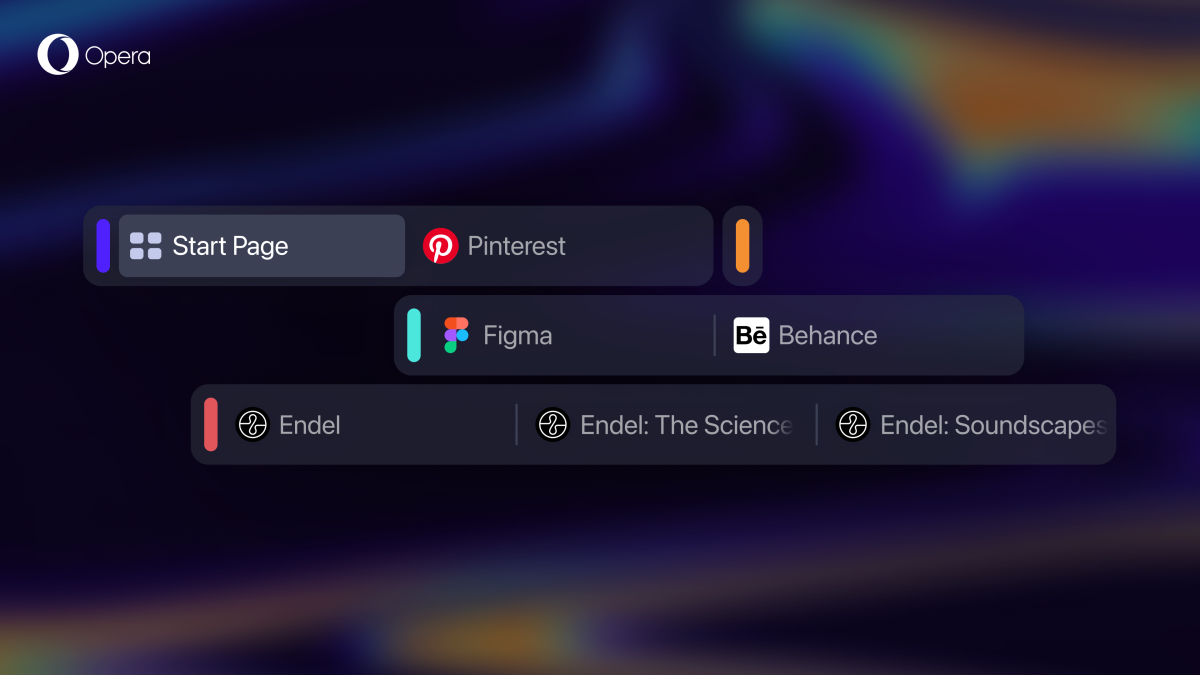Opera shows off AI, tab grouping in its Opera One browser update
 Image: Opera
Image: OperaOpera, which has established itself as a boutique browser vendor, has announced Opera One, a complete redesign and eventual replacement of its existing browser. Opera One features optimizations for modular elements and new AI-powered tab grouping features, called “Tab Islands.”
All told, Opera One has a slick new look, but with technical underpinnings that leave it open to adding new AI-powered capabilities in the future. Opera is also promising that a new “multithreaded compositor” will improve performance, so that Opera One takes advantage of the multicore capabilities of modern PCs.
The browser is in early developer mode, according to Opera, and will be released later this year for Windows, MacOS and Linux.
When you think of AI, AI art generators or chatbots like ChatGPT come to mind. But the flagship feature of Opera One is something called Tab Islands, which sounds like it could be extremely useful if it works as expected. Grouped tabs are nothing new, whether it’s simply manually re-arranging the tabs yourself versus tucking them away in one of the Collections of Microsoft Edge. What Opera One’s Tab Islands does is group them using AI.
If you’re searching for hotels, condominiums, plane flights, and things to do on a vacation, Opera’s Tab Islands will automatically highlight and group those tabs for you. Each Tab Island will appear as a separate row or column of tabs, separate from the others.
“In the new, reinvented version of Opera, Tab Islands are the first manifestation of its Modular Design: they are clearly distinguishable in the browser UI, marked by separate colors and clear island borders,” Opera said.

Opera
Opera
Opera
That’s the next element of what Opera is promising. A modular design that puts less in front of your face, not more. While browsers use sidebars and taskbars to help conceal some of the more complex elements of what the browser could show, it sounds like Opera’s modular design will simply conceal the elements it doesn’t think you’ll need, entirely.
“As a result, the browser has a cleaner, decluttered look with plenty of space for future AI-based features and extensions in both the browser sidebar and address bar,” Opera added.
The current version of Opera already supports ChatGPT and the related ChatSonic AI content creation tool. The modular design will allow it to add more AI capabilities as they come to market. Under the hood, Opera One will act more like modern games and apps. All modern microprocessors include multiple cores and instruction threads, allowing them to do several things in parallel. Older apps have been single-threaded, performing one task, then another, but all in order. Opera’s multithreaded compositor will allow it to split up tasks among your processor’s cores and threads, improving overall performance.
Opera’s pledging to deliver its own AI engine, potentially offering its own spin with what Microsoft has done integrating Bing AI in Microsoft Edge and what Google will do, presumably, with Bard. Opera has already used AI intelligence to clean up video, too. We don’t know if that will all come together by the time Opera ships, helping it land in our list of the best Web browsers and giving one more reason to switch from Chrome to Opera.
Author: Mark Hachman, Senior Editor

As PCWorld’s senior editor, Mark focuses on Microsoft news and chip technology, among other beats. He has formerly written for PCMag, BYTE, Slashdot, eWEEK, and ReadWrite.
Recent stories by Mark Hachman:
Arc’s new browser for Windows is too twee for meThe new Meta.ai website can draw amazing AI art instantlyWhy pay? One of Photoshop’s best features is free in Windows






